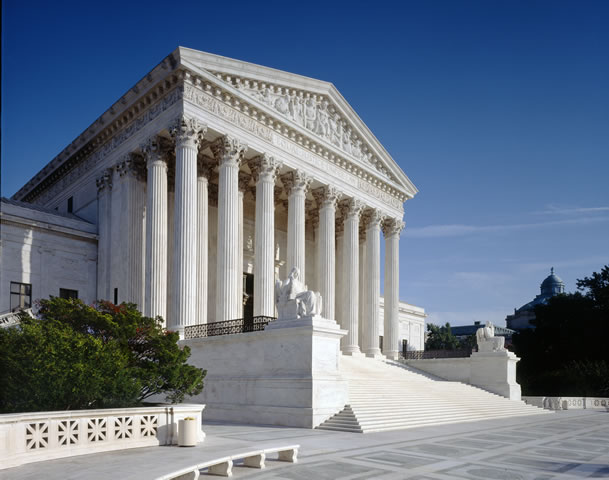US Supreme Court Seeks Biden Input On WhatsApp’s NSO Lawsuit

Justices on US Supreme Court mull whether Meta’s WhatsApp can pursue its lawsuit against NSO Group, and seek Biden administration input
The US Supreme Court on Monday asked the administration of President Joe Biden for its input about an Israeli surveillance specialist NSO Group.
Specifically, the US Supreme Court asked the Biden administration for its thoughts on whether the justices should hear a case on whether Meta’s WhatsApp division can pursue its lawsuit of NSO Group.
It all began in May 2019 when WhatsApp urged all its users to update their software to fix a vulnerability that was being actively exploited to implant advanced surveillance tools on users’ devices.
![]()
Pegasus spyware
In October 2019 Meta’s WhatsApp filed a lawsuit against the Israeli firm, alleging that NSO was behind the cyberattack in May 2019 that infected devices with advanced surveillance tools (namely the Pegasus spyware).
WhatsApp alleged NSO exploited a bug in the messaging app to install spy software. It said the software was used for the surveillance of 1,400 people, including journalists, human rights activists and dissidents.
Apple filed its own lawsuit against NSO in November 2021.
But soon the furore surrounding NSO’s Pegasus spyware became even greater when a December 2020 report by Citizen Lab at the University of Toronto alleged that dozens of Al Jazeera journalists had been hacked with the help of Pegasus, by exploiting a vulnerability in the iPhone operating system.
Worse was to come in July 2021, when the Pegasus Project (a collaboration of more than 80 journalists and media organisations) alleged that NSO’s Pegasus had been used “to facilitate human rights violations around the world on a massive scale.”
It allegedly uncovered evidence that revealed that the phone numbers for 14 heads of state, including French President Emmanuel Macron, Pakistan’s Imran Khan and South Africa’s Cyril Ramaphosa, as well as 600 government officials and politicians from 34 countries, had appeared in a leaked database at the heart of the investigative project.
In September the investigative website Mediapart alleged that traces of Pegasus spyware had even been found on the mobile phones of at least five current French cabinet ministers, deepening the diplomatic fallout.
In November NSO was officially blacklisted by the US Commerce Department when it was placed on the US entity list. Being placed on the Entity List, means that exports to the firm from US companies are restricted.
NSO for its part, has always maintained that it sells its Pegasus software to governments and law enforcement agencies for the purpose of tracking down terrorists and other criminals.
But such is the furore, NSO in December was reportedly exploring its options that includes shutting its controversial Pegasus unit, or selling the entire division.
WhatsApp lawsuit
During this time Meta’s WhatsApp lawsuit against NSO continued to proceed.
NSO didn’t help its cause in March 2020 when it failed to show up in the American court after efforts were made to serve legal papers against it.
A California court clerk entered a notice of default against the Israeli firm.
NSO responded and asked the US court to sanction Facebook for allegedly failing to abide by international law with regards to its lawsuit against the surveillance software maker.
NSO alleged it had not been served in accordance with international law known as the Hague Convention.
NSO appealed a trial judge’s July 2020 refusal to award it “conduct-based immunity,” a common-law doctrine protecting foreign officials acting in their official capacity.
And in November 2021 the 9th US Circuit Court of Appeals in San Francisco rejected a claim by NSO that it was immune from being sued, because it had acted as a foreign government agent when it installed the Pegasus spyware.
The case has now gone before the US Supreme Court, where the justices are considering NSO’s appeal of a lower court’s decision that allows the lawsuit to proceed.
Reuters reported that the Supreme Court on Monday asked the Justice Department to file a brief offering its views on the legal issue.